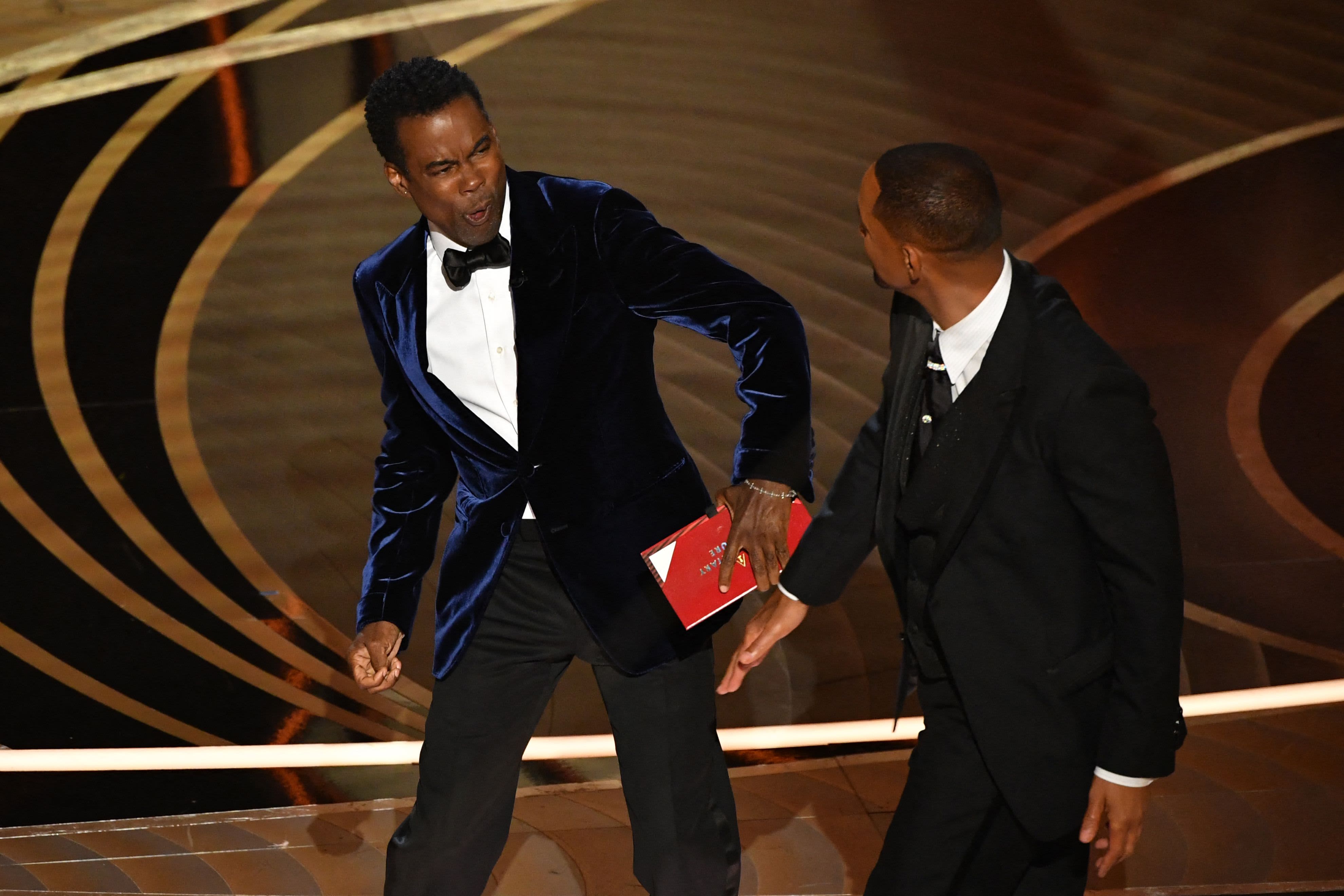It was the slap seen around the world, with Hollywood A-lister Will Smith walking up on stage at the Oscars and slugging comedian Chris Rock.
"It wasn't Chris Rock's problem," said Boston University Professor Tammy Vigil. "The problem was really Will Smith trying to think he needed to use violence to defend his spouse in a situation where violence wasn't warranted or appropriate."
Rock had just made a joke about Jada Pinkett Smith that seemed to mock her bald head. That's when her husband jumped into action.
"I think that what he was doing was really engaging in what some people might actually refer to as an indulgence of toxic masculinity," said Vigil, who studies media, political communication and popular culture.
Get Boston local news, weather forecasts, lifestyle and entertainment stories to your inbox. Sign up for NBC Boston’s newsletters.
More on the Academy Awards
"My behavior at last night's Academy Awards was unacceptable and inexcusable," Will Smith wrote in a social media post. "I would like to publicly apologize to you, Chris. I was out of line and I was wrong. I am embarrassed and my actions were not indicative of the man I want to be."
Pinkett Smith suffers from alopecia, which causes hair loss.
Soon after the incident, Democratic Rep. Ayanna Pressley of Massachusetts, who suffers from the same disease, tweeted her support of Smith, positing, "Shout out to all the husbands who defend their wives living with alopecia."
"I imagine when she first responded, she was responding as an alopecia sufferer," said Boston College Professor Zine Magubane. "And the violence of the moment receded for her."
But the tweet was deleted and the congresswoman posted follow up tweets Monday.
This time, she wrote, "I don't endorse violence in any form."
"I can completely see that act of retraction as encapsulating how the meaning of this incident is multiple and layered," said Magubane, who studies race, gender and popular culture.



